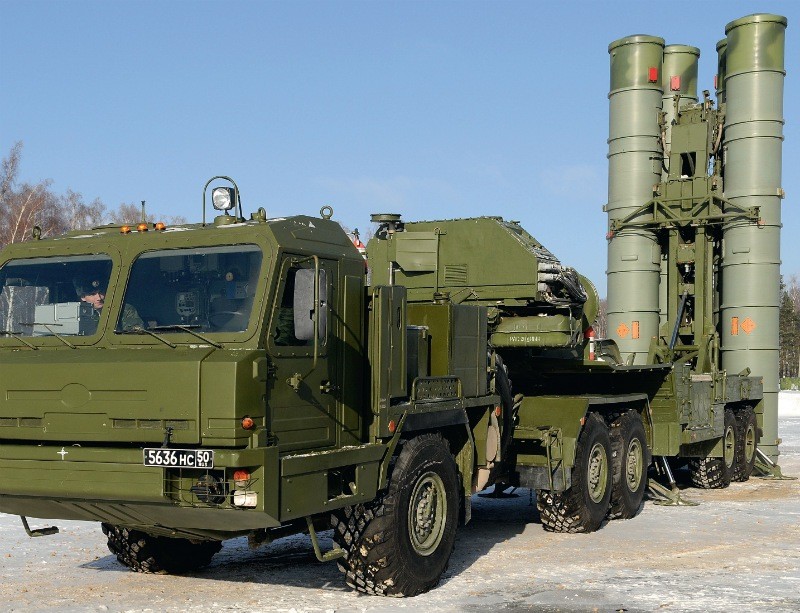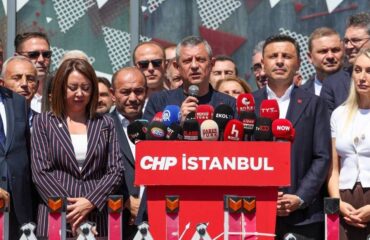

The US sanctions imposed on Turkey, due to the purchase of Russian made S-400s, by the US President Donald Trump days before he is to hand over the Presidency to Joe Biden is a harbinger of a turbulent period in Turkey-US relations.
The current conundrum has also led to adverse repercussions in NATO.
The sanctions were introduced on the grounds of violating Countering America’s Adversaries Through Sanctions Act (CAATSA) as a result of procuring S-400 missiles from Russia. The first crisis in this regard surfaced in 2019 by way of excluding Turkey from the F 35 project. Turkey had made very significant investments in the F-35 project. It is a fact that there has so far been rare commonsensical and objective analyses of the burdens owing to the exclusion of Turkey from that ambitious project for the Turkish defence industry and overall economy in terms of strategic implications.
Is national sovereignty tantamount to S-400?
Some circles posit that the sanctions against the Defense Industry Presidency (SSB) as an institution and four high level officials are not that severe, that is, they are ‘sanctions light’. Those same circles, therefore, introduced them to the Turkish public in a sugar-coated way.
There had even been officials who went further and argued that the US sanctions against the SSB would not hinder the Turkish Armed Forces’ ongoing modernization projects. In their opinion, there was essentially nothing to worry about.
If we were to briefly scan the military circles, we observe that different views are being floated. Despite their background enabling them to forecast the possible consequences of purchasing S-400, it seems that some of those involved in determining system supply parameters in the past tend to present the S-400 system as a choice of necessity. And it is those people who are most vociferous on that matter.
Those circles who should advocate for attempts to first accumulate the necessary technological knowledge with a view to building Turkey’s own national missile defence system do not hesitate to present the S-400 issue as an important milestone in national sovereignty. Instead, they seek to take comfort in their own world beset by narrow ideological attitudes. Some of them use the S-400 issue as an alibi for their anti-Western stand.
S-400 beautification and dilemmas
Regrettably, in the discussions of late revolving around the S-400, the number of people who have so far analysed the compelling need for building a national missile defense system on a factual and objective basis has been limited, certainly with some exceptions.
Those people who do not have a full grasp of the background of the issue, and who proceed from hearsay information and notes prepared for them, including those who prefer to keep their ideological obsessions, continue to live happily in their comfort zones. They do not let a day pass without beautifying the S-400. Be that as it may, it should be fully understood that neither sovereignty nor full independence can be achieved with the procurement of a foreign system of a strategic nature. Therefore, there exist seamless dilemmas for those who find counsel in their pro S-400 attitudes.
The imposition of sanctions by an Allied country such as the US against another NATO Ally, namely Turkey, is simply intolerable and unacceptable. There is no doubt that such an act does not conform to being in the same Alliance. On the other hand, the Alliance spirit is a two-way street and applies to both sides.
The question that must be posed here is why Turkey, which by her own sovereign will, participated in the Alliance decisions at the highest levels, opted for procuring a strategic weapons system which is neither compatible nor interoperable with NATO systems?
Sanctions: no impact on Turkey?
Another question to be asked is which NATO member country purchased a strategic weapon system from Russia after the former’s invasion and annexation of Crimea and destabilization of the Donbas region of Ukraine? The answer to this last question is that none except Turkey has chosen such a course.
It is generally expected that the US President, Joe Biden, will not immediately have a recourse to confront Turkey in the context of the CAATSA sanctions as his priority when he takes over the US helm. It is likely that this observation will hold. Provided events will evolve like expected, Turkey could have a window of opportunity in front of her.
Those who underestimate the potential adverse effects of the US sanctions and, despite the deepening pockets of instabilities around Turkey, claim that they will not erect barriers in meeting the needs of the Turkish Armed Forces are overly optimistic.
Those who take the institutional sanctions imposed on the SSB lightly consol first themselves and the Turkish public at large. It is not convincing to claim that the institutional part of the CAATSA sanctions would not have a negative impact on the Turkish defence industry, which has an intensive web of contacts and projects with the European defence companies.
European companies may also take part
If the USA starts to impose sanctions or even increase them according to developments, who can guarantee that European companies having large scale partnerships with the American defense companies would not take part in the US sanctions when the US starts implementing them or even consider expanding their scope depending on potential developments?
If no solution could be found for the current impasse, it is highly likely that not only the Turkish defence industry, but also the Turkish economy would suffer severe damage. The realisation of such an outcome, particularly at a time when the Turkish economy is undergoing serious strains, may have direct adverse consequences for many segments of the population. Under such a dark scenario which country would accord benevolence to Turkey?
Ambassador of Russia to Turkey, Aleksey Erkhov, cast some light on another aspect of the issue in June 2020 in the following terms: “We sold Turkey the product what it wanted from us. We made a sale. I took the money from you, and I gave you the product. The product is now yours. Whether you go to the beach or carry potatoes with it or mount a machine gun on it and wage a war is up to you. It is also your natural right to keep it in the garage.”
While the Russian Ambassador to Ankara shows respect to Turkey’s sovereign decision on the one hand, albeit in an arrogant manner, he tactlessly meddles in Turkey’s decision with putative “authority”, the source of which is nebulous.
Confession of the Russian Ambassador
The Russian Ambassador reveals another fact about the supply of the Russian missile defense system. And that is the following: The system is purchased off-the-shelf. There is neither joint production, technology sharing, nor the presence of Turkish defense industry companies as stakeholders in that sales package. Under such circumstances, at least three of the six criteria set out by the sovereign decisions of Turkey herself in the near past are not met. Therefore, it is legitimate and valid to ask the question: Wherein lies the sovereignty in this deal?
It is incumbent upon those who took the decision to procure the S-400 system and consider that deal as representative of Turkey’s sovereignty are bound to provide valid and convincing answers to these questions. That said, those same circles continue to enjoy and promote a joyful atmosphere around them.
We should first and foremost seek an answer to the question of what should be done in the context of this situation, which is likely to be faced in the short term, and which could deeply affect the Turkish economy, especially the Turkish defence industry.
What is to be done?
First of all, we must return to the criteria adopted by those at the helm not long time ago for defense industry procurement programs, and re-possess them.
We must exercise the utmost care to ensure that the systems to be procured with the joint production cooperation model should conform to the standards applied by the Turkish defense industry. We must take swift steps to avoid the negative repercussions of the US sanctions with a view to producing the necessary weapons systems, which are vital for all forces taking part in the defense of our country, especially the Air Force, are not affected by the US institutional sanctions. Additionally, we must find ways to hedge against any potential weakness in defence, which could arise. While doing that, we must proceed taking our national needs and priorities as the basis on the one hand, and take account of the decisions adopted by the Alliance to which we are party by our own sovereign will, on the other hand.
Technology and joint production needed
It is absolutely necessary to develop a missile defense systems lacking for many years based on a national program, and in this context, not to get into bilateral frameworks and especially engagements for ready-made purchases. We should not choose the option of procuring strategic weapons systems not meeting our standards, not including technology sharing nor joint production, and which do not cater for the participation of the Turkish defense industry companies.
In this context, it is necessary to put aside the idea of activating the S-400 system and prepare our defense industry to develop a long range medium-to-high altitude national missile defense system.
Parallel to this effort we should take part in a consortium such as EUROSAM to attain the goal of technology sharing coupled with joint production in the first instance for the Turkish defence industry. We should stay away from bilateral procurement models, be it from Russia, the USA, or China, and instead prefer a multilateral cooperation model à la EUROSAM to found our national missile defence architecture. We must, therefore, maintain our sovereignty, not like we do now, but with the goal of seeking a nationally based missile defense architecture starting initially in a multilateral framework.


